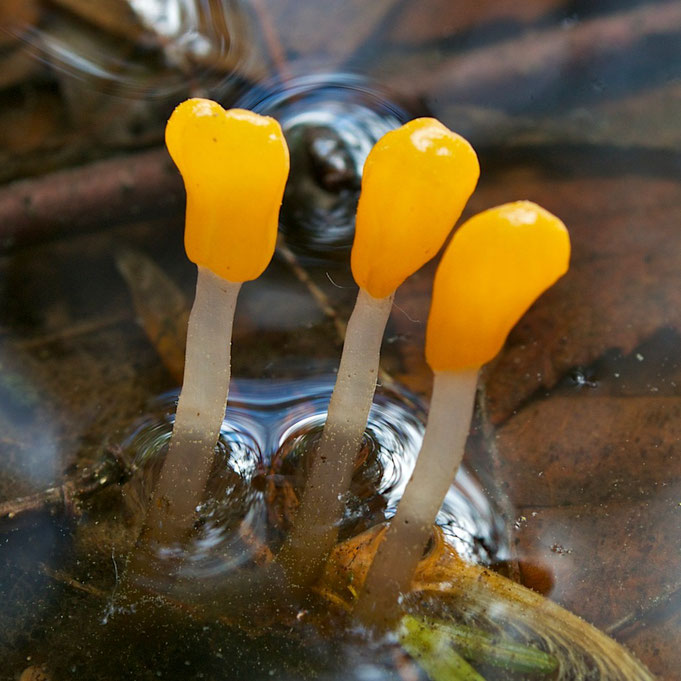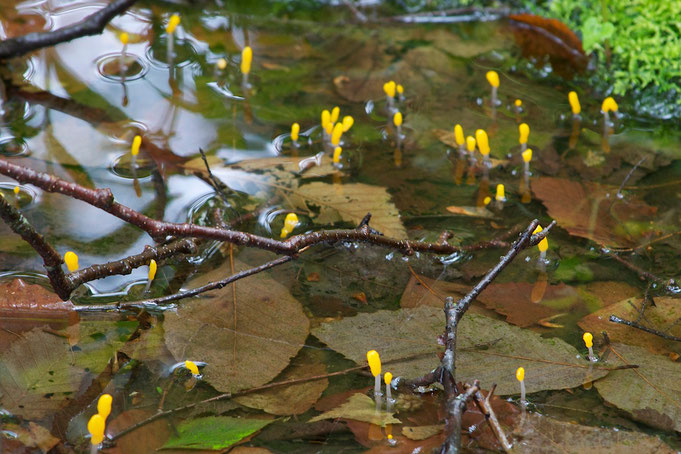aka Matchstick Fungus

Swamp Beacons are the club-shaped fruiting body of the Mitrula elegans fungus. They grow in marshy and wet areas either solitary or in groups, and are often found growing directly in shallow standing water. Appearing in the late spring or early summer, they sport an irregular blob-like orange/yellow cap, with a stem that is smooth, straight, and translucent white. Up to 2 inches tall (5 cm), Mitrula elegans is a ‘recycler’ fungus, feeding on dead and decaying plant litter. They play a vital role in driving the carbon cycle, releasing nutrients that they don’t require back into the habitat.
Swamp Beacons are native to North America and are considered a common fungus. The habitat they require, however, is becoming quite rare. They need very specific conditions to thrive, but when those conditions are met they can be found in profusion. Of the twelve different wetlands here on Distant Hill, Swamp Beacons are growing in only one.
A very similar species, Mitrula paludosa (known as Bog Beacon in the UK) is native to Europe.

Fungi play a major role in decomposition of wood and leaf
litter in forest ecosystems. To break down this material, many fungi use enzymes that need oxygen. Swamp Beacons belong to a class of fungi that can degrade leaf litter and woody debris under water, without the need for oxygen.
Check out this University of Virginia website for more on the Swamp Beacon.


